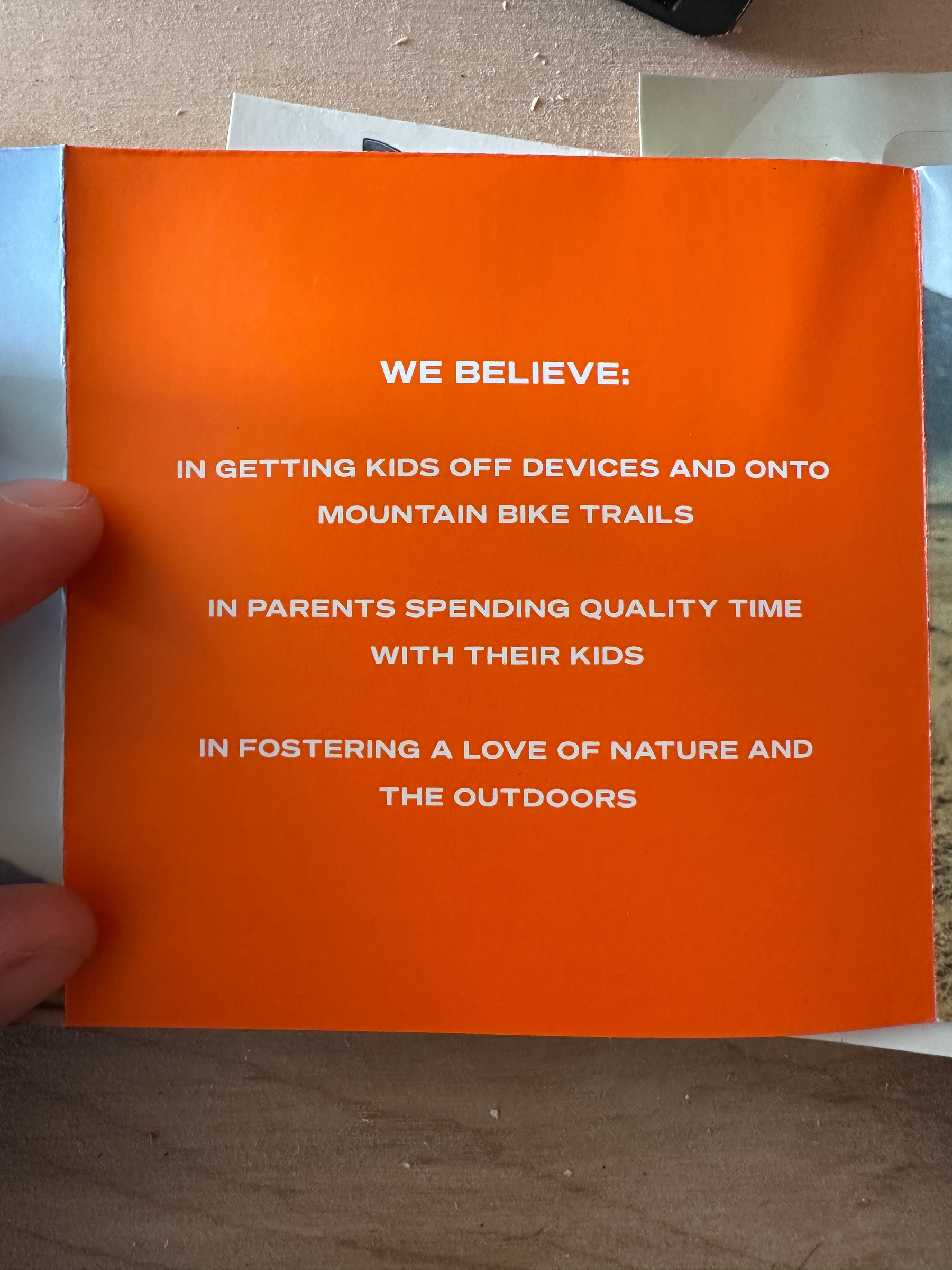Happy “Your Order Is Ready at Sherman’s Bookstore” Day.

The Triumphs and Tragedies of the American Revolution — David Frum’s interview of Ken Burns is quite worth your time
Kids Ride Shotgun • Thanks to our friends Molly and Justin for a great wedding gift. Pretty flawless design as far as I can tell.







The Great Enshittening — “I think the defining characteristic of enshittification is not that things got worse, but that we kept using them after they got worse.”
Good interview with Cory Doctorow (ironically enshittified and enshittifying AI advertisements notwithstanding).
30 September 2025


Finished reading: The Fortress by Meša Selimović 📚
It was my duty to defend Mahmut from humiliation. And myself, too. But I didn’t. I’d swallowed Avdagas insult, perhaps I’d even smiled, and now it stung me like a wound. I was ashamed of my cowardice, but still I thought, “Tis a good job I didn’t say anything to make him angry.” I thought both things at the same time! Inside me two men were living simultaneously and with equal strength, totally different, entirely opposite, the one glad not to have exposed himself to danger, the other profoundly unhappy that he was a shit, and both equally sincere and both fully justified. And only a moment before, under the eaves, I’d been thinking of the double narure of Mahmut Neretlyak as being a wonder. We’re all the same wonder, the same misery.
Loved this book! Bridge on the Drina meets All Quiet on the Western Front, at least at first. But the novel grows much lighter in weight before long.
The shop was in the bazaar, in the street called Mudzeli-ti, under the clock tower, tiny and insignificant, hot and stuffy in summer, cold as a dungeon in winter, close to the public toiléts that stank unbearably, so that Mula Ibrahim and I took turns to light incense and inulin, as in a church, to appease the evil power of stench. But our use of incense helped not at all, and we had no choice but to grin and bear it.
None of this mattered to me. I laughed, “A man can get used to any smell."
Mula Ibrahim just gave a good-natured smile and replied, without his usual mention of God’s name, since we were alone, “I always say: Let it be no worse."
“Which is what the wise man said when they were taking him to the gallows."
“And rightly, too. They could have killed him then and there, and he’d have lost even those few, last moments of life. There’s always hope, even on the way to the gallows."
“Pretty vain hope!"
“Still, hope. And that’s better than nothing. But this stench, mind you, suits me fine."
“How can it?"
“Well, it’s this way. Why do you think the public toilets are here? Because this is the center of the bazaar. And that’s just where I want to be, under everyone’s feet. Left to choose between pure air and paupers and a stink with profit, no wise man would hesitate. Two watermelons under one armpit won’t go, nor can two good things come together. So, let it be no worse."
“Amen."
I love the deep, relatable, every-day, often-funny, down-to-earth, hard-learned very-human wisdom that casually bounces across the pages of Serbian literature like this.
They were both silent, one dead, the other living but distrustful. Yet I wanted to know. Rarely had I ever wanted anything so much, as though that knowledge would have opened to me many secrets concerning humanity.
I’d seen the death of a powerful man, killed by grief. I’d seen what was perhaps murder from a distance. I’d seen human hatred, but I was obsessed by only one thing: Was his last thought vengeance or love?
It seemed as though my entire life depended on it.
I decided for love. It was less realistic and less probable, but more noble. And better: This way everything had more meaning. Both death … and life.

Woodstack liturgy